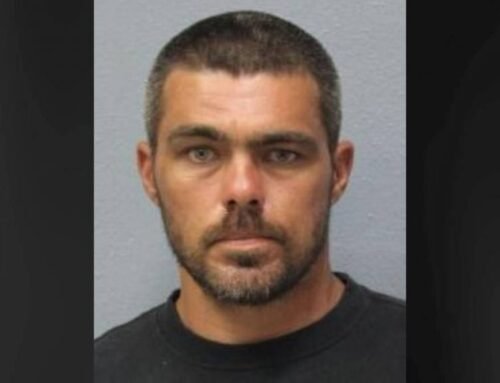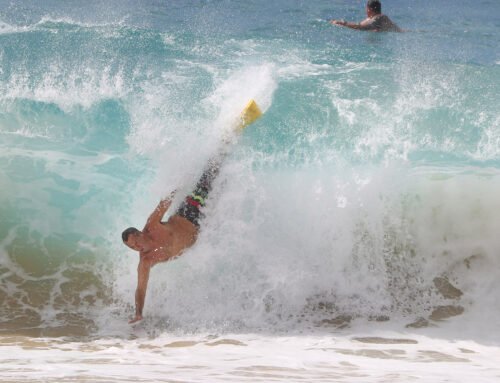I was a board member for Coffey Strong which was formed after our fire to help our neighborhood, Coffey Park, recover.
I now work for United Policyholders, which is a nonprofit that has three programs — Advocacy and Action, Roadmap to Preparedness and Roadmap to Recovery. I work in the last two programs, educating people about insurance and helping people navigate their insurance after a disaster. I sit on long term recovery groups, helping to guide survivors and disaster case managers (who will be helping survivors) on their insurance, discussing different options for rebuilding, mental health and best practices.
Sharing is key in these disasters. I have yet to meet a survivor of a disaster who doesn’t want recovery information shared. All of it. What worked, what didn’t work and what was a complete mess. Paying it forward so the next group doesn’t make the same mistakes that we made. The learning curve is steep and is compounded by the trauma that we have all gone through.
No. 1 message: Do not act too quickly in major decisions. You have time. Do not allow insurance companies to pressure you in settling or turning in your complete contents list. Most people will be underinsured. Total loss would equal a total payout on all policy limits in that case.
Take care of yourself and your family. You have gone through a trauma that has altered everything that was safe and secure in your life. Know that now it is extremely important to eat healthy, get some exercise and check out all the options for mental health help.
“Fire brain” is what I call the condition that survivors have for quite a while after the disaster. Remembering things is difficult, nightmares are common, anxiety is 24/7, and you can be triggered in a hot second. Getting help now is easier than waiting until you break. Keep a close eye on your children. They likely will have different reactions but will have their own PTSD.
Utilize every resource available to you. Nonprofits and non-government organizations are the major help after a disaster and will be working to help you any way that they can. Don’t be afraid to ask, “What can you do for me?” We are there for the sole purpose of helping you and if we can’t we may be able to direct you to someone who can.
Do not sign any contracts — public adjuster, builder, lawyer — without thoroughly understanding what is in that contract. Legal aid is at your disposal as are a good amount of people doing pro bono work. There is so much to know and learn and we have to depend on others who are experts to help us.
My favorite question after every meeting I had, whether it was with a builder, lawyer, insurance etc. was, “Is there anything that I should have asked that I didn’t?” I learned a lot from the answer that followed that question.


When family and friends ask what they can do for you give them some errands that will lighten your load. Many people will offer to buy you things. If there isn’t something specific that you need right now ask them for a gift card so that when there is, you can get it and save your resources for recovery. People want to help, let them.
Be very careful when hiring a builder. Check with three people they have worked for before. Did they get the job done in the time frame they promised, did they run over budget, do they have some financial backing to bridge the gap between milestone payments?
Those are some of the big questions. Check Yelp, Facebook, Better Business Bureau — anything that can give you a clearer view on who you are going to be able to trust and work well with for a very long period of time. Copies of builders workers comp insurance and bond are important also.
Utilize big builders. Building one home, even if it is exactly what you had, is considered a custom build. There are increased costs that go with this type of rebuild. “Soft costs,” architect, soil analysis, surveying for property lines.
Using a “production” builder who has pre-approved floor plans and limited finishes will not only speed up your recovery but also should offer you some economy of scale with “soft costs” and buying in bulk. Much more economical to buy 200 of the same toilets than six toilets that are all different. One trip by a surveyor to do 20 houses brings down the cost.
Secure your rebuild money so that your builder only gets paid after completing a milestone. This will insure that your builder never has more of your money than his percentage of completion. If he/she walks away or files for bankruptcy you will not be in a financial hole and still can complete your rebuild after securing another builder.
Do not drop your insurance. You need liability for your empty lot at the very least and when the building starts you will want builders risk or course of construction insurance. Check with your agent on what would be best for you.
Many insurance agencies are not writing “new” policies. By keeping your insurance active and with the same agency the hope would be that upon completion of your build you would just be able to roll right into a homeowners policy.
For help with your insurance feel free to reach out to me, Annie@uphelp.org.







Leave A Comment